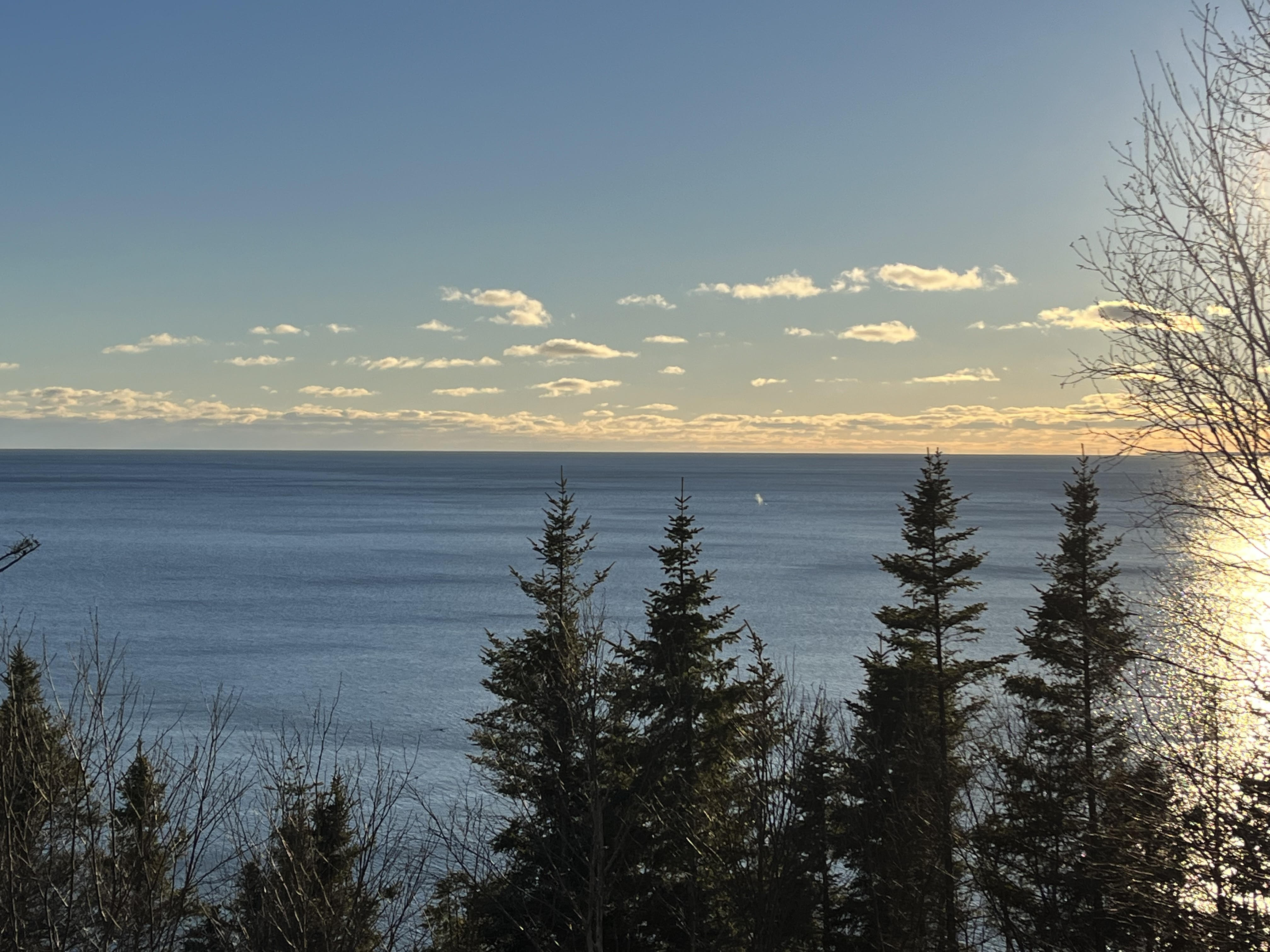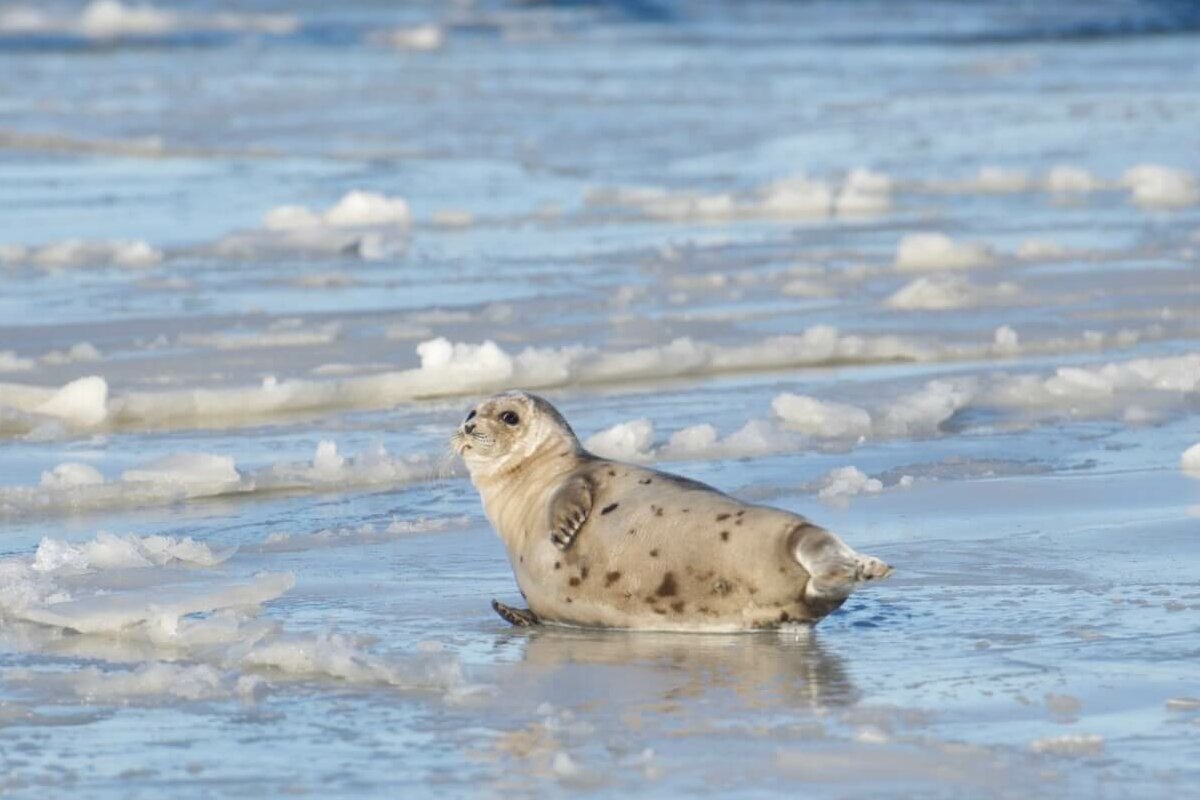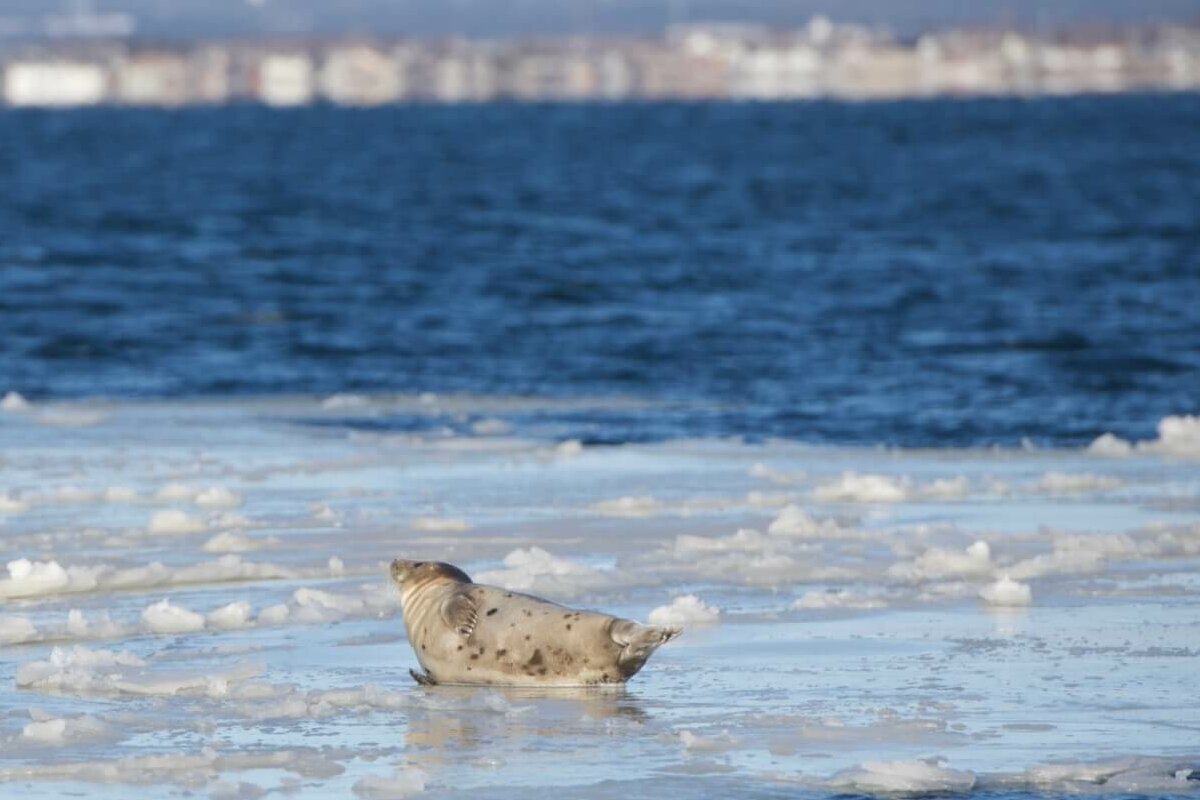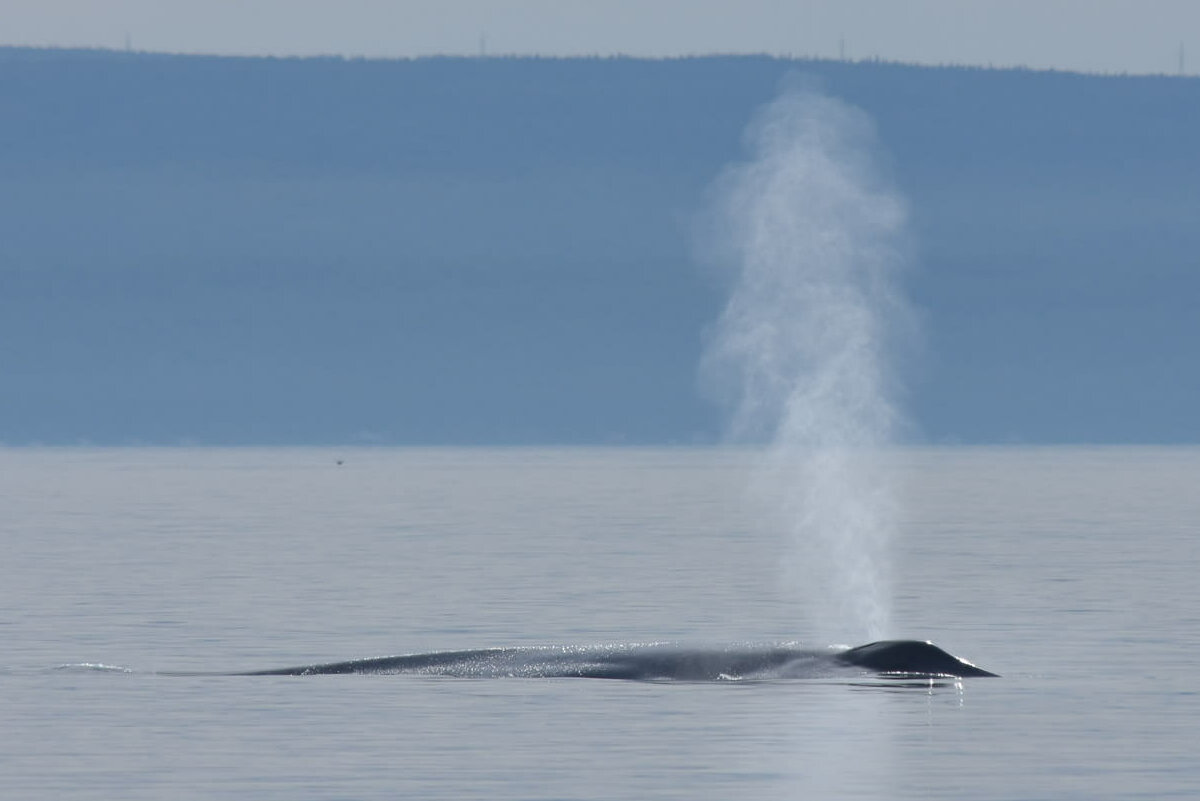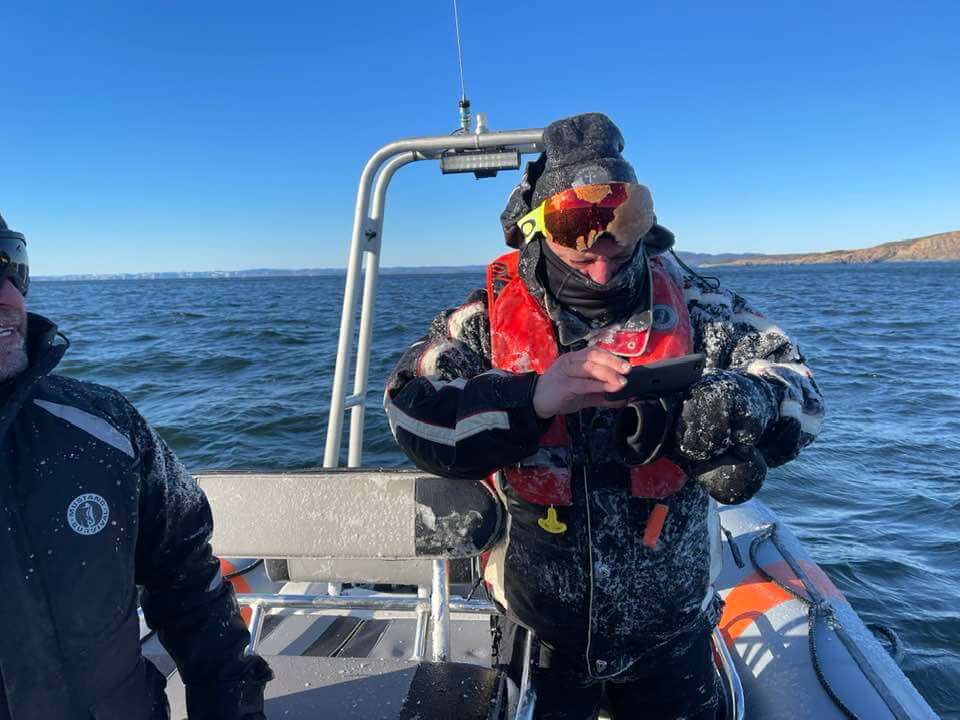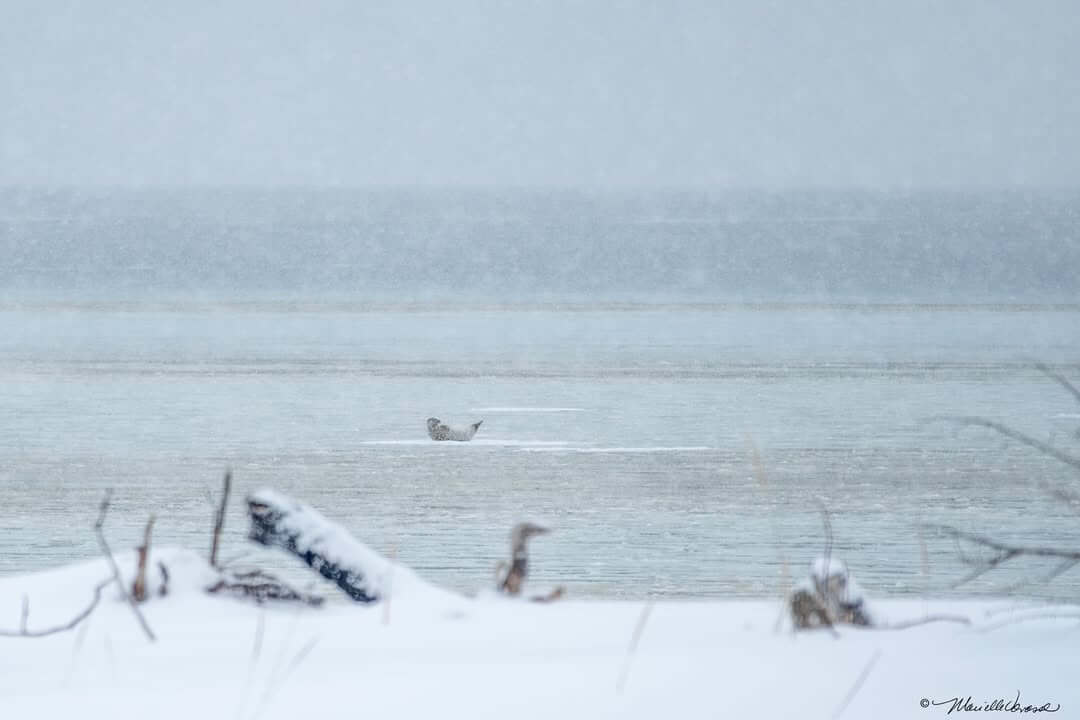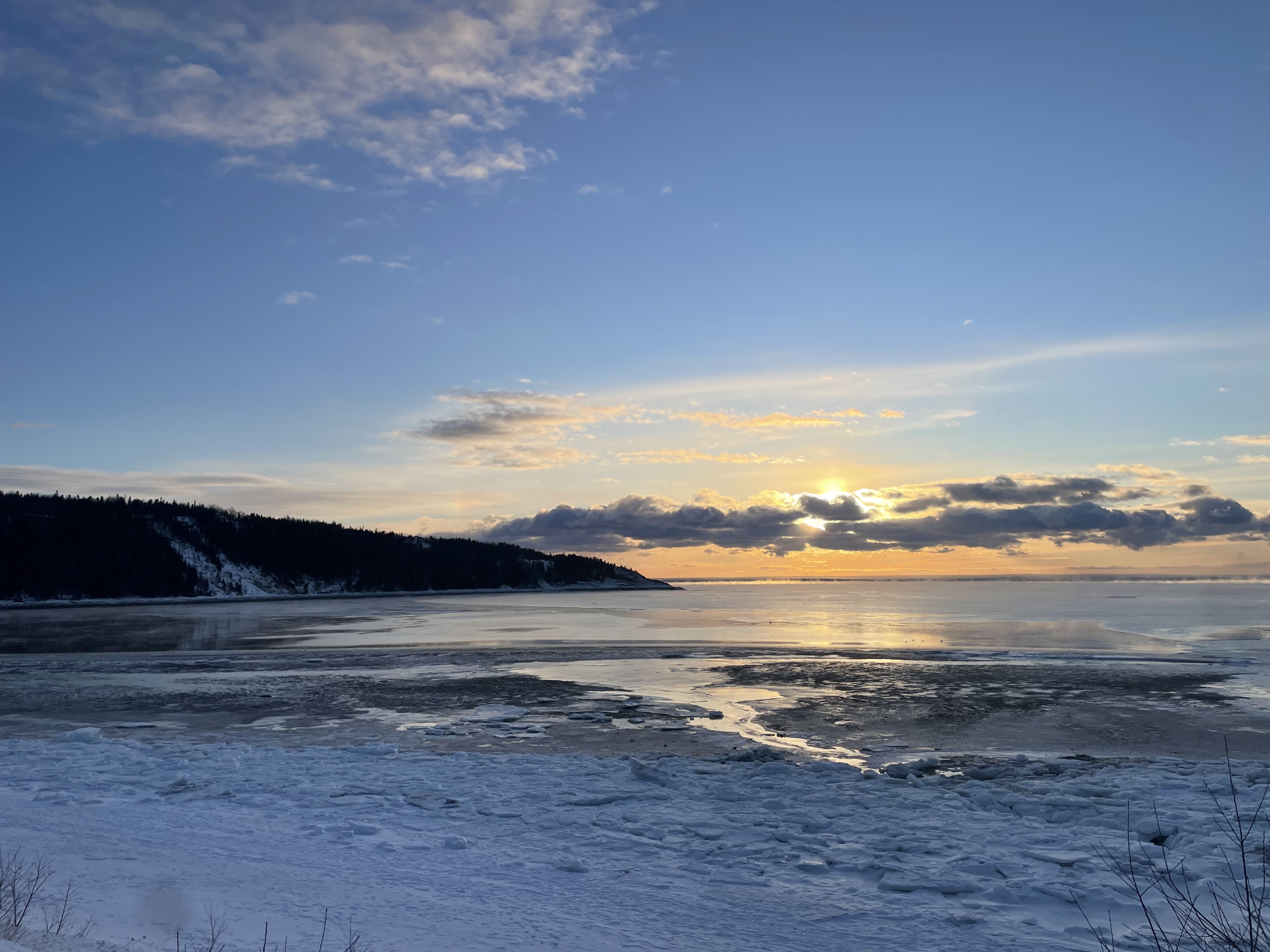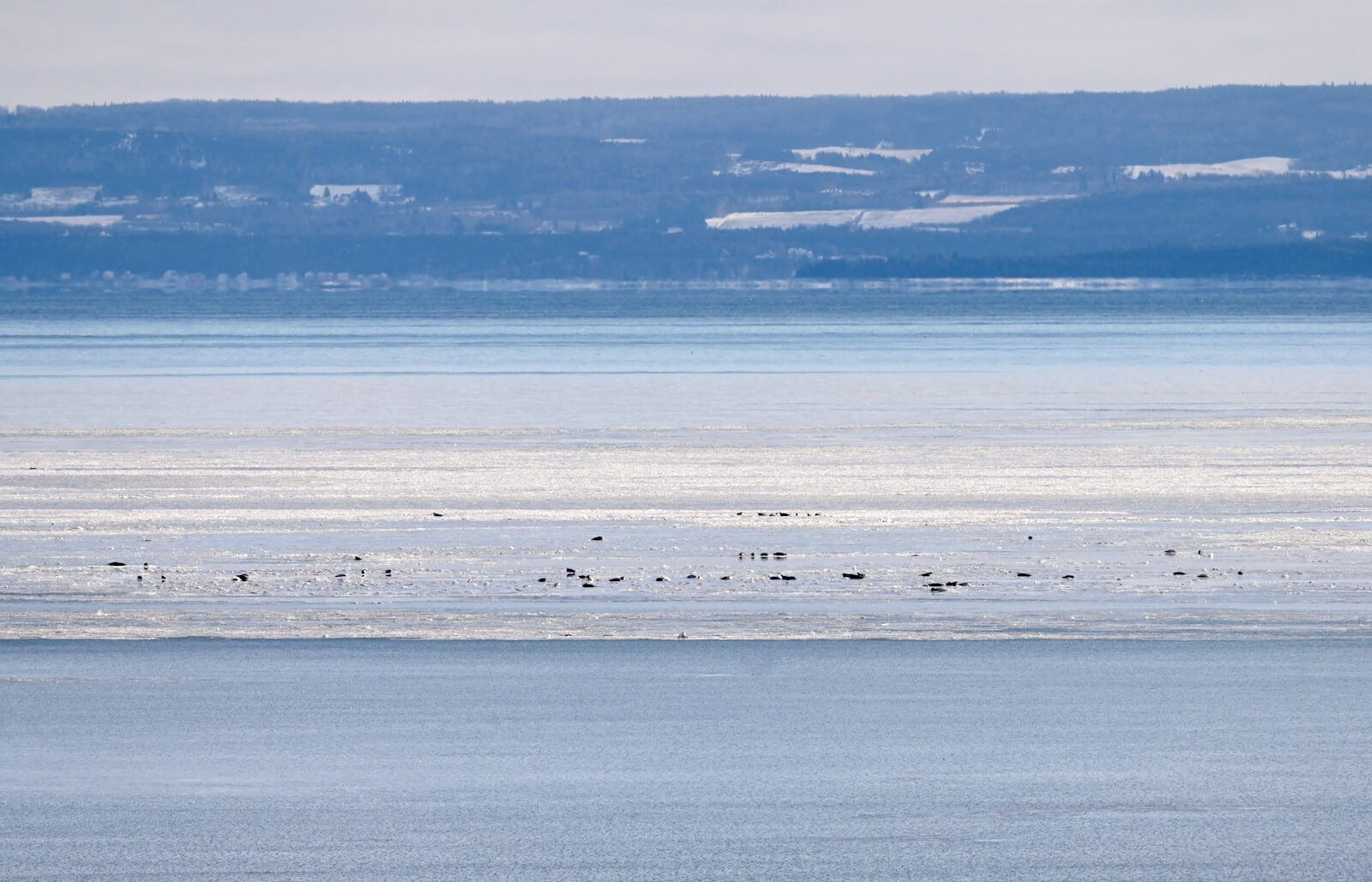A pleasant visit to the St. Lawrence this week makes one want to hum the tune “Blue Christmas.” Not for the prospect of a Christmas spent alone, but for the passage of a blue whale! Temperatures are dropping, but marine mammals are not overly affected.
Family reunion in Franquelin
While weather conditions make water travel more difficult for humans, nothing seems to slow down cetaceans. There was lots of action last weekend in Franquelin. Observers report the presence of humpback whales whose frosty spouts could be seen from afar. Harbour porpoises and at least two minke whales were reported offshore, not to mention the presence of a blue whale. From the coast, blue whale spouts could be observed for about thirty minutes, much to the delight of local residents. “What a surprise it was to see huge, column-shaped spouts contrasting with the horizon, which suggest the presence of a blue whale!” testifies one observer. The next day, two humpbacks are seen again, including one moving toward Baie-Comeau.
A few days later, off the coast of Sept-Îles, a blue whale was also observed near Île du Corossol. In the same region, a harbour seal took the time to rest on the ice that partially covers the St. Lawrence this winter. A grey seal was also seen swimming and feeding offshore.
The largest animal on the planet, the blue whale measures between 21 and 28 metres long and weighs between 50 and 110 tonnes. In the gulf and estuary, it is seen regularly in summer and rather sporadically during the winter. It is important to know that the blue whale has been listed as an endangered species in Canada since 2002.
Strong presence of a northern species
This week again, minke whales continue to feed at the mouth of the St. Lawrence and Saguenay rivers, just in front of Tadoussac’s Marine Mammal Interpretation Centre. These deep waters teem with zooplankton and fish, making them the perfect place to forage. Wildlife photographer Renaud Pintiaux also notes the presence of belugas and a harbour seal at the same location.
At Cap de Bon-Désir, Renaud had the chance to photograph a large group of white-sided dolphins numbering in the hundreds. According to his Facebook page, the animals were racing west, executing a few full leaps out of the water en route.
The onset of winter marks the arrival of a species that is emblematic of the North and the extreme cold: harp seals. On December 13, about forty members of this species were observed off Pointe-aux-Outardes. Harp seals reside in the estuary and the gulf during the winter and leave in the spring, unlike most other marine mammals that visit the St. Lawrence in the summer months. The harp seal, whose Latin name translates as “ice lover,” uses the pack ice for moulting, whelping and breeding. In fact, its strong attachment to the sea ice makes it vulnerable to climate change and melting ice. It stands out from other species of pinnipeds in that it is the only one known to swim on its back!
Share your observations!
Have you seen any marine mammals in the St. Lawrence? Whether it’s a spout offshore or just a couple of seals, drop us a line and send your photos to [email protected]!


